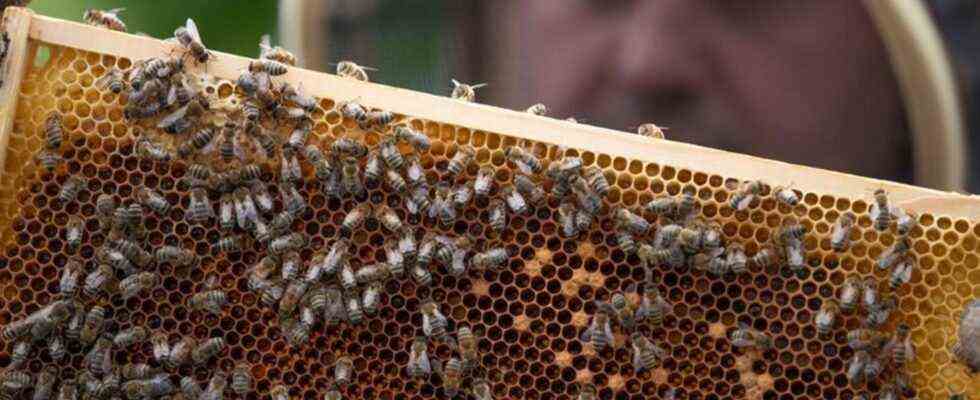Agriculture
Beekeeping Association wants subsidies for spray technology that is kind to bees
Beekeepers are demanding subsidies for Dropleg – a spray technology that is gentle on bees in agriculture. Photo: Friso Gentsch / dpa
© dpa-infocom GmbH
The use of pesticides in agriculture causes considerable damage to bees. The so-called dropleg is supposed to help. But that costs money. Who pays for it?
To ensure that fewer bees come into contact with pesticides when collecting nectar, the German Beekeeping Association is demanding extensive subsidies for spraying technology in agriculture that is gentle on insects.
The so-called drop-leg technique could reduce the damage to bees and other insects caused by the use of pesticides, said the President of the German Beekeeping Association, Torsten Ellmann, of the dpa.
Dropleg
With Dropleg, the spray system is lowered. The agents are not injected from above, but from below via drag hoses. This means that the active ingredients should only come into contact with leaves and plant stems and not in flowers. The catch: the farmer no longer harvests fruit, so the investment is not economically worthwhile for him.
The federal government is promoting the acquisition of new injection molding machines that have the drop-leg function. However, according to Ellmann, farmers do not receive any money for retrofitting older machines with the technology. He thinks that is wrong, after all, this is where the greatest potential lies. An already existing federal funding program for environmentally and climate-friendly technologies – the “Farmer’s Billion” – should also apply to drop-leg retrofitting, according to Ellmann.
According to estimates by the Beekeeping Association, Germany has around 1.1 million bee colonies, which are very important for the pollination of plants in nature. Active ingredients from chemical pesticides cause problems for insects, disorientation and other effects lead to the death of many bees.

